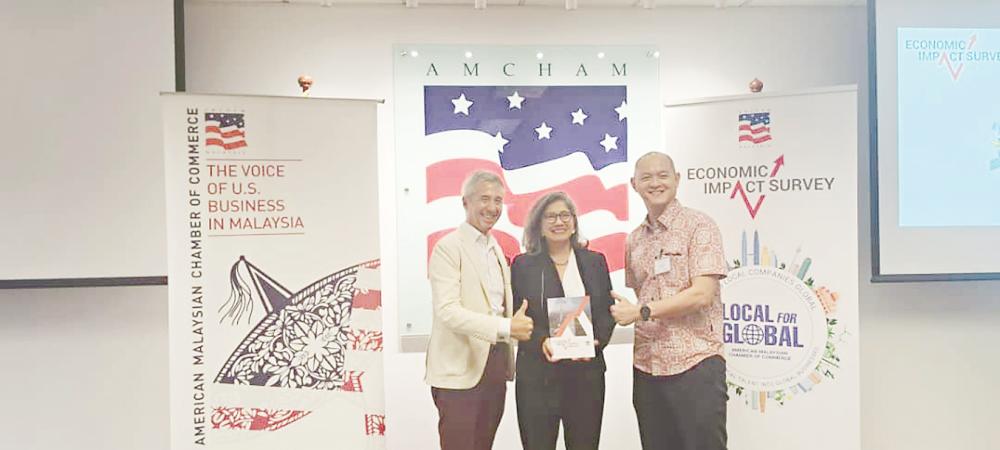KUALA LUMPUR: Some 56% of US corporations in Malaysia are concerned about the government’s future policies with regard to tax-related issues, which could affect business decisions of manufacturers going forward.
Results of American Malaysian Chamber of Commerce’s (Amcham) biennial Economic Impact Survey (EIS) 2022-2023, which were released today, showed more than half (56%) of US companies in the manufacturing sector are concerned on the regulatory environment of the country, particularly on the tax treatment or customs regulations; global minimum tax (GMT) incentives as well as incentive policies.
According to Amcham CEO Siobhan Das, companies in general require to be made aware of any tax-related changes about five to 10 years in advance so as to be able to understand and formulate a plan, in order to comply with the relevant tax regime.
“If a company is coming into Malaysia or any other country ... what is the tax environment going to be like? Is it stable is or not stable? How are we going to look at it? Because these are very long-term investments.
“If you look at the US companies that have been here, they've been here for decades ... there's the big investment state and environments change, but essentially, they need to understand what's going on. In general, what is Malaysia going to be doing with its current environment, GMT plays into that and what is Malaysia (planning to do?),” she told reporters at the EIS launch.
The 81 member companies that took part in the survey employ 148,778 individuals – of which 89% are Malaysians and paid up to RM11.7 billion in salaries.
“In addition to these salaries, Amcham members contributed to the future and security of their employees, paying RM1.3 billion towards the country’s EPF and Socso,” it said, referring to the Employees Provident Fund and the Social Security Organisation.
Manufacturers reported a significant number of local suppliers supporting their operations in Malaysia. Counting only contracts worth up to RM100,000 annually, 7291 relationships with local suppliers resulted in total contracts valued at RM22.97 billion.
Additionally, the EIS shows Malaysia as an important hub for manufacturing, with 57% of manufacturing members being operationally linked to other Asean nations, such as Singapore, Thailand and the Philippines.
Asked whether the outcome of the upcoming US presidential elections would impact trade or commerce relations between both countries, she opined that it would not impact any relations between the two as the US companies present in Malaysia are committed to doing business in the country for the long term.
“The companies that are here, have landed here after great and careful consideration. These are long term investments ... our job is to work with the government of the day. We make sure that we have great communication with both the governments in Malaysia as well as the US to understand what we're dealing with,” she said.
Meanwhile, former international trade and industry deputy minister Ong Kian Ming said that regardless of the presidential election outcome, US foreign policy on China would remain unchanged.
“Which means that China plus one strategy that many companies are pursuing, whether its American European, Chinese, Japanese, Korean or Taiwanese will continue, with the focus still on Southeast Asia.
“I think the challenge for the government as well as the different agencies involved ... will be to try to make the pitch for why Malaysia is the best place to invest for certain types of companies that we want to target,” he added.









